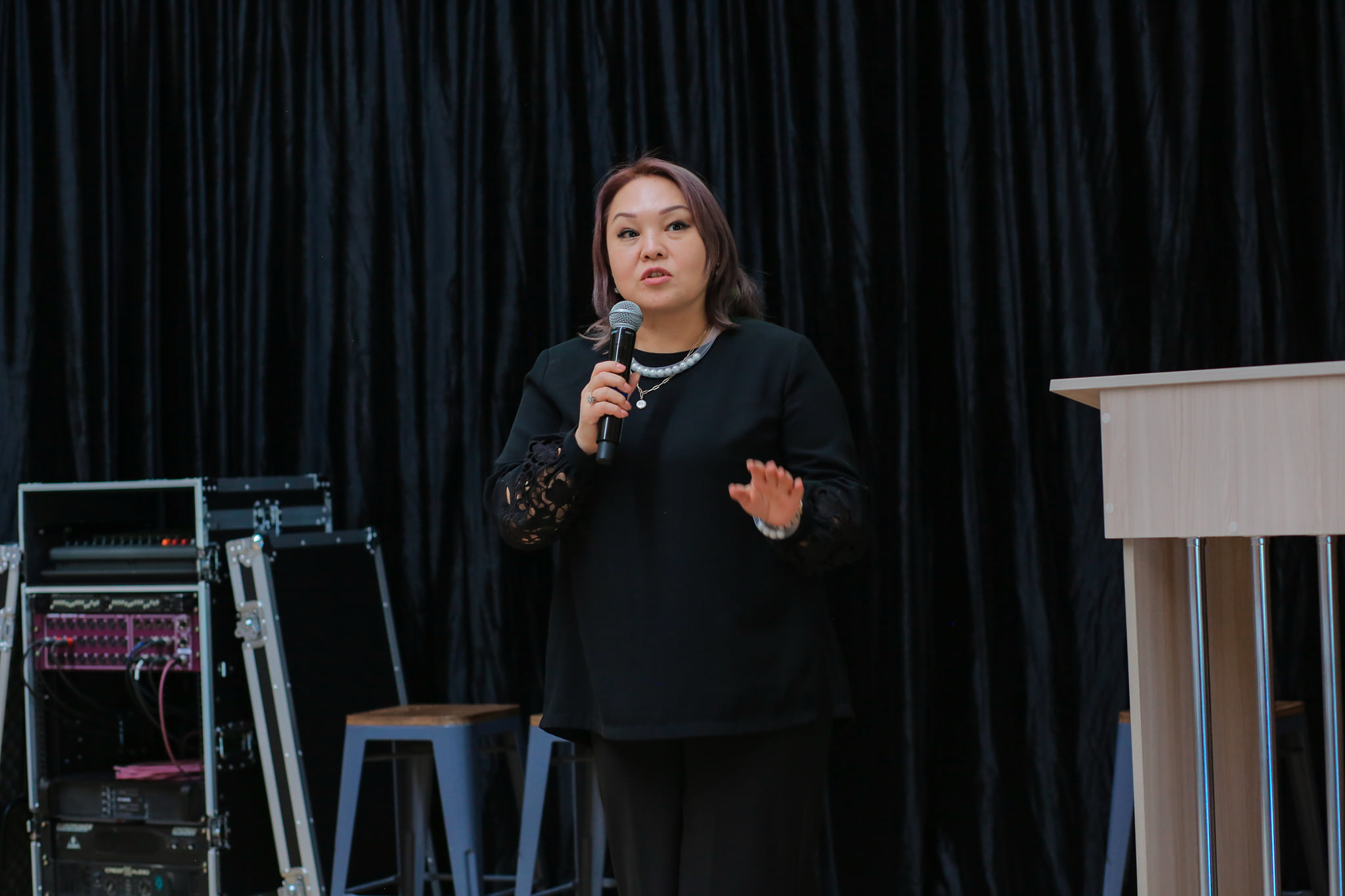April 8, 2022
��
During the implementation of the 1st stage of the project - February–March - the Green �鶹��ý project team with the PPD conducted the first inventory of waste on campus and analyzed its results.
Based on the results of the initial waste analysis at �鶹��ý, as well as conversations with environmentalists and waste processors in Kyrgyzstan, it became clear that it is necessary to use existing boxes on the �鶹��ý campus in a different way.
The project team changed the signs and hung them differently on the eco-boxes already on campus. 4 additional eco boxes were added, which were not there before (now there are 45 eco boxes on campus, before there were 41).

So there are eco boxes to collect:
The food waste is now handed over only to Kitchenette, from where they are taken to feed cattle.
The rest of the waste that cannot be recycled now, we collect in the remaining bins and take it to the landfill. For these boxes, special signs were made "Other waste: any waste except bottles, waste paper and food waste" and a list of what can be thrown into them.
Another 20 eco boxes for waste paper will appear in the near future in �鶹��ý offices / departments at the request of faculty and stuff.
We have already handed over waste paper for recycling twice within the framework of the project (in March and at the beginning of April) - a total of 587 kg of waste paper! At the same time, the university's income from paper "garbage", which used to just go to the landfill, amounted to a total of 8,800 soms. With this money, in the near future we will purchase stationery and office paper and distribute them to the offices and departments that took part in the initiative and the delivery of waste paper.
Also at the beginning of April, we handed over 13 kg of batteries for disposal (!) – thanks to the caring staff, faculty and students of �鶹��ý who handed over the batteries!
! We continue to collect waste paper, plastic, electronic waste and batteries – and we will hand them over for recycling/disposal in June.
In parallel with the separate collection and delivery of waste for recycling, �鶹��ý began work to reduce the amount of waste. . We decided to start with a more economical use of paper, since waste paper is currently one of the most voluminous types of waste on our campus. Suggested solutions from PPD: convert documentation to electronic format where possible - for example, send applications by e-mail and do not print out the extra, only when necessary.
For more information about the results of the 1st stage of the project, you can get from:
What is next: to hand over more types of waste for recycling, receive income from “garbage”, create a guide, unite with other universities.

Almost all types of waste that are generated in Kyrgyzstan can either be processed or disposed of now. In theory, almost nothing can end up in landfills ... Another question is under what conditions waste is accepted for recycling or disposal - you are paid for waste as raw materials (for someone your garbage is raw materials!) or you pay for their disposal. By the way, congratulations to �鶹��ý on the first income from the delivered waste! It is very good. And, at first glance, it seems that the amount is small - 5000 soms - for a one-time delivery of waste paper. But if you hand over waste paper regularly, then in the annual perspective a significant amount is collected, which will go to support offices. And such income can be obtained not only from paper, but also from some other types of waste,“ Asel Arstanbekova, Director of the NGO CSR Central Asia, stressed at the event on March 30.
Among the recommendations to the project, which were made by the participants of the events on March 28 and 30, was the conduct of a larger information campaign among students, staff and faculty of �鶹��ý, etc. universities – through open mass events (lectures, trainings, during Orientation Week, through games, etc.), the creation of a universal guide (manual) for educational institutions of Kyrgyzstan on the organization of a waste management system, the creation of a mobile waste application and many others.
The Green �鶹��ý team has recorded all the recommendations and critical comments that will only help make our project better. We thank each participant of the discussions for their feedback and will definitely analyze it and take it into account!
As for the further development of the Green �鶹��ý project, in the near future we plan to:
increase the type of waste collected on campus, which can then be recycled (add the collection of lamps, glass, plastic lids from under coffee glasses, aluminum cans);
In general, we have a lot of plans and ideas. We will be glad of any help, new ideas, suggestions for cooperation and your support! If you have any thoughts on how to improve our project, if you ready to cooperate or want to offer your help/services, write to us at cce@auca.kg and lazutkina_m@auca.kg marked “Green �鶹��ý" (to the �鶹��ý Center for Civic Engagement e-mail or directly to Margarita Lazutkina).
��
��
��
��
��
��
��